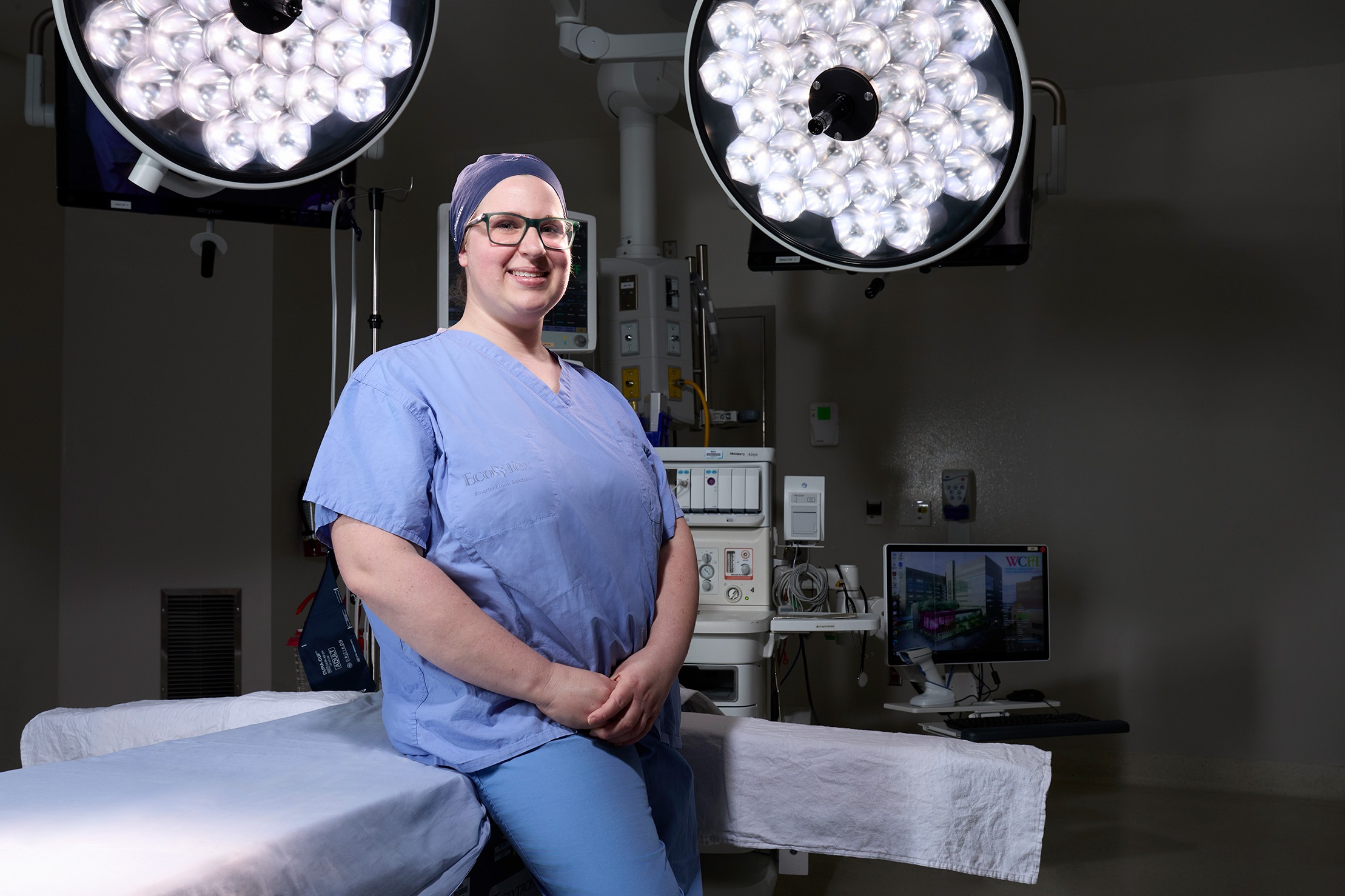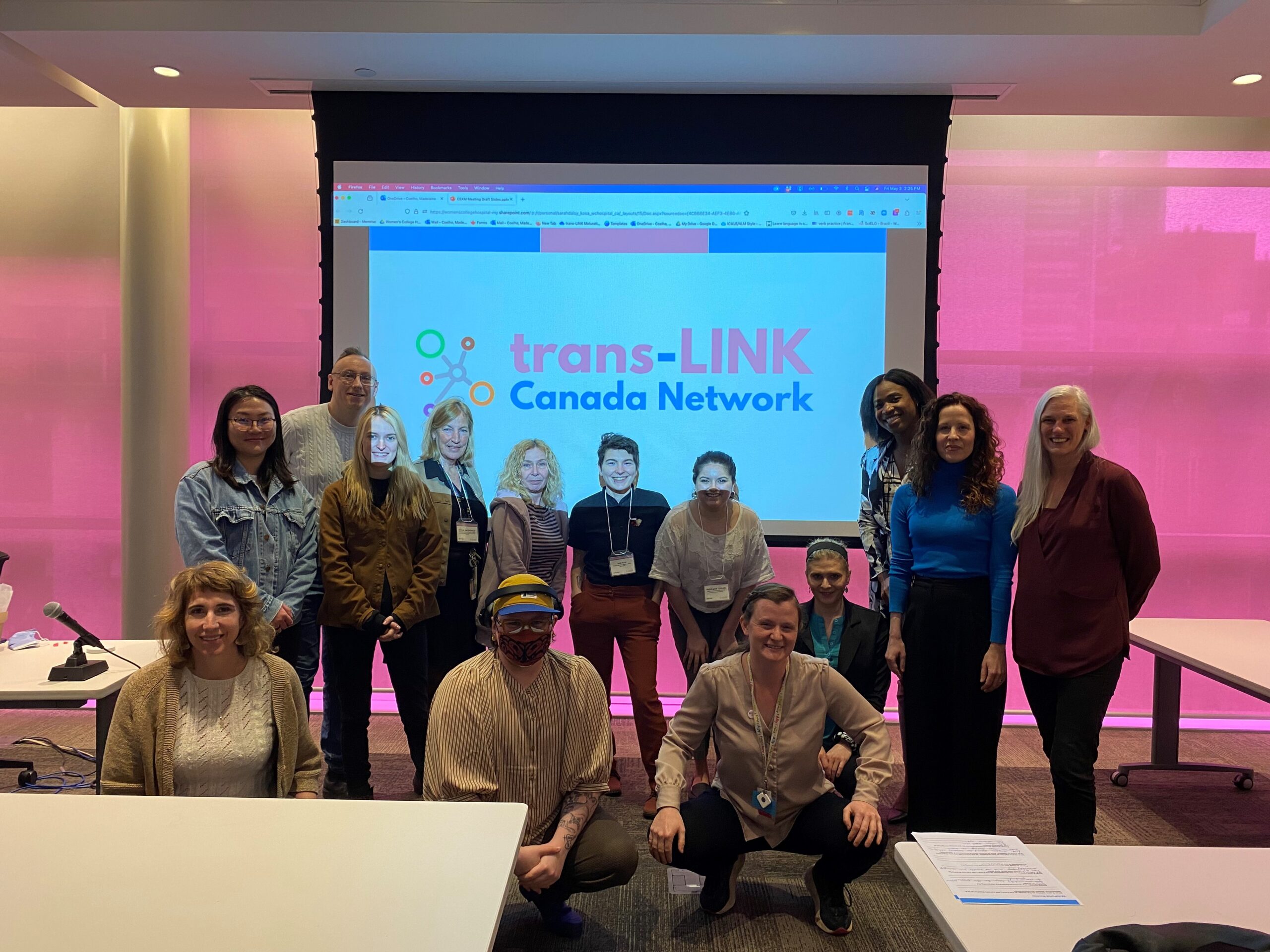Transition Related Surgery program reaches milestone in patient care delivery

Jackie, Transition Related Surgery program patient
Transition Related Surgery program reaches milestone in patient care delivery

Jackie, Transition Related Surgery program patient
“There wasn’t a moment. I think I knew it all the way back to my childhood, as long as I can remember.”
Jackie’s transition journey began almost three years ago when she shared what she had always known with her close family and friends. “Before my transition, I was uncomfortable with something, but I didn’t know what that was until I figured out that I was trans,” says Jackie. “Before I was out, I was very quiet and kept everything to myself. I was mentally exhausted, and my dysphoria was just something that I couldn’t get out of my head.”
Jackie’s experience is all too familiar for many. With continued gaps in education and training in nursing or medical schools, it can be difficult to not only learn about the options available for trans and gender diverse (TGD) patients but also to receive quality care and consultation. While TGD identity doesn’t always hinge on transition-related surgery, Jackie’s dysphoria made it clear that vaginoplasty was the right decision for her.
Jackie’s loved ones embraced the news with unwavering support, allowing the now 22-year-old lifeguard and swimming instructor to embark on a path toward self-discovery and authenticity. “I felt so lucky,” she says. “To be supported by my family and friends from the very beginning of my journey – not everyone in our community gets that lucky.”
But this wouldn’t just be a milestone for Jackie – it would also be one for Women's College Hospital’s (WCH) Transition Related Surgery (TRS) program, which would welcome her as its 100th vaginoplasty patient. This achievement highlights the tenacity of the surgical program. It is a testament to all the TRS patients before Jackie, whose experiences shed light on the importance of support, research and determination in the pursuit of gender-affirming care.
Under the leadership of Dr. Yonah Krakowsky, medical director of TRS, and nurse practitioner Emery Potter, Women’s College Hospital’s transformative journey to enhance healthcare for TGD individuals began in 2017. This initiative would make WCH the exclusive provider of genital transition surgeries in Ontario and only the second such clinic in Canada at the time.
“I consider it a real privilege to be part of the TRS program and to contribute to its growth,” says Dr. Alexi Millman, a urologist at WCH. “Our capacity for vaginoplasty surgeries has more than tripled since the program's inception, and I see it continuing to expand. The program has meaningfully contributed to WCH’s trajectory of becoming a true centre for excellence with respect to sex and gender in health.”

Dr. Alexi Millman in the operating room
To ensure precision and inclusivity at the onset, WCH initiated a comprehensive education campaign extending from pharmacists to environmental service workers to volunteers within the hospital, aimed at equipping them to support TGD patients. They also invited 20 TGD people to walk through the surgical journey, identifying potential areas of discomfort.
Changes were made. Washroom signs went from the traditional male-female binary to include gender-neutral messaging. The hospital tweaked its electronic health records system, prioritizing patients’ chosen names over legal names. Even more granular changes, like providing opaque bags for wigs in patient lockers, showed a nuanced understanding of the unique needs of TRS patients.
The TRS program expanded its capabilities by hiring a nurse practitioner. A pelvic physiotherapist also underwent specialized training, contributing to the formation of a robust multidisciplinary team capable of addressing the diverse needs of patients. Over time, the profile of the program rose, and so did the demand for this life-saving care.
“Advancements in research into TGD healthcare and commitments to staffing and expanding specialized services within the TRS program have played a pivotal role in meeting the rising demand,” says Olivia Drodge, a physiotherapist working in TRS. “As a pelvic physiotherapist, my role is crucial in optimizing patients’ physical health and well-being throughout their surgical journey. Collaboration between various specialties ensures that patients receive surgical expertise, mental health support, social support, rehabilitation and pain management.

Physiotherapist Olivia Drodge conducting pelvic floor exercises with a patient
With the help of this interdisciplinary team of clinicians, the program has made strides in ensuring comprehensive care for patients like Jackie, emphasizing a patient-centered approach and providing resources, guidance, and a supportive community throughout the process.
“My best friend and I were obsessed with doing the research ourselves. We thought we already knew everything we needed to,” says Jackie. “Still, the entire team was friendly and approachable. They made me feel so secure and spent time telling me all the things I might not find in a resource book, like hotel discounts and tips for post-surgical care.”
Jackie also emphasizes the importance of support during the first-year post-op, praising the TRS team's open communication and guidance. "I’ve recently had some post-op complications, and my relationship with the people in the TRS program has made it a lot easier to share my concerns and deal with these issues," she says, noting the hospital's commitment to follow-ups, both medical and emotional, showcasing a holistic approach to patient care.
Reflecting on her experience, Jackie acknowledges the significance of being the 100th recipient of vaginoplasty at WCH. Her hopes for the future extend beyond personal milestones. "I want the program to keep reaching people who need it. These surgeries are quite literally saving lives."
Trans-Link Canada Project Forges Ahead With
$2.5 Million Grant

Trans-LINK Canada Network members at network planning meeting at WCH
Transgender and gender diverse (TGD) individuals face high rates of sexual assault and intimate partner violence, yet access to safe, non-stigmatizing services for TGD individuals remains limited. The Trans-LINK Canada Network seeks to address this pressing issue with the help of a $2.5 million Partnership Grant from the Social Sciences and Humanities Research Council (SSHRC). The network is led by Women's College Hospital senior scientist Janice Du Mont in collaboration with a multidisciplinary team of experts.